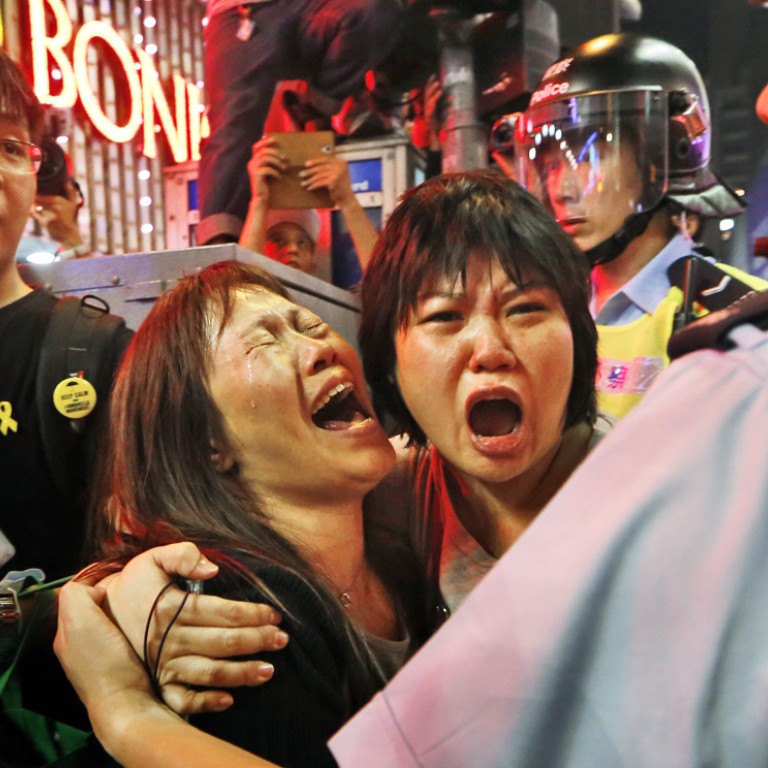
Time to end the occupation - peacefully
Bernard Chan says protests have highlighted problems we must now solve
On Tuesday morning, I had half an eye on the TV news from Mong Kok, where bailiffs and police were preparing to dismantle pro-democracy protesters' barricades. For a long time, little happened. Bailiffs read out the court injunction, and activists shouted back.
Suddenly, I looked up and saw buildings and police cars being set alight. The action had turned to Ferguson, Missouri, where serious disorder had broken out after a grand jury decided not to indict policeman Darren Wilson over the shooting of Michael Brown. Then the news switched back to Mong Kok. People were slowly moving a tent to the roadside.
The first few days of the Occupy Central civil disobedience campaign were chaotic and worrying. Scenes of tear gas being fired were shocking and made headlines around the world. That aroused public sympathy for the mainly young demonstrators, while the police - in a difficult situation - were left looking less good.
Things could probably have been handled better. But the students acted on the spur of the moment, and it was an unprecedented situation. In the following days and weeks, the protest sites were mostly calm. International coverage even made the street camps into tourist attractions. The police mainly kept a low profile.
One journalist with local roots wrote a moving account of the first few weeks of the protests in a leading international magazine. The tear-gassing of unarmed civilians, he wrote, reminded him of scenes in Islamabad, Cairo and Ferguson.
I have checked. Islamabad this year has had scores of deaths in terrorist attacks. Some 800 people died in Egypt's 2011 revolution, and anti-regime protests in Cairo this year have claimed yet more lives. Ferguson, as we have seen, has burning vehicles and rock-throwing. Whatever strife we have in Hong Kong, there is simply no comparison.
That writer went on to mention some of the background to Hong Kong's unrest. Demand for more accountable government is very strong, he said. Poor public trust in the government, a rising wealth gap, unaffordable housing and the dominance of tycoons left ordinary people with little choice but to take to the streets to be heard.
Maybe he was being a bit dramatic, but I think we all recognise - or should - that he is basically right. Not everyone agrees that blocking streets was the best way of doing it, but the protests have certainly succeeded in getting these messages across.
This should mean it is time for the protesters to pack up and leave. In the past few weeks, more and more of my contacts locally and overseas have asked why the Hong Kong authorities have been so lenient. My response is that while public opinion has increasingly wanted to see the protest end, most people oppose anything that could lead to violence. It is best to be patient.
It is wrong to see the protesters' occupation of the streets, or their eventual departure, in terms of a victory or a defeat for anyone. Society has been split over these tactics. But we must come together to solve some fundamental questions - about political reforms, about our economic structure, and about how to achieve a society that everyone can accept as basically fair.
The TV news on Tuesday afternoon showed police in Mong Kok facing uncooperative crowds, using pepper spray and making arrests. In Ferguson, meanwhile, stores were being looted, buildings were going up in flames. Later on, there were shootings, and National Guardsmen were sent in.
I am sure Hong Kong will see more bickering and protests, and that demonstrators will remain mostly orderly and our police professional. If everyone accepts a need to keep it peaceful and rational, we should succeed in solving our problems.

